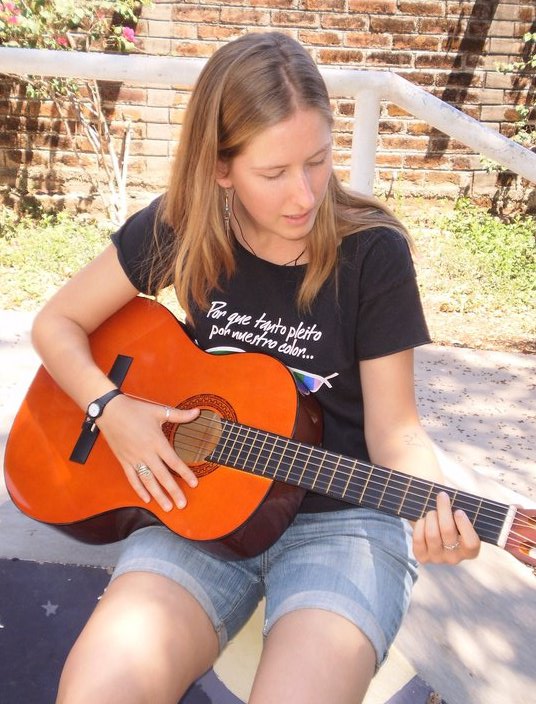The day started out with a procession before mass from one of the barrios to the church. I was on the fence about going, but I am really glad that I did. There wasn't much of a program ahead of it, but each of the zones of communities had a queen and king representing the area with some form of artistic/cultural expression. There were about seven pairs of 'royalty' along with kids with environment-related school project, women with baskets of harvested food, etc.
Throughout the procession, we sang and there were occasional chants of "que viva los campesinos," "que viva la Madre Tierra," "que viva Suchitoto." I have to admit, it was pretty cool hearing the nun who leads the interminable pre-mass rosary sessions (and usually holds up mass by 10-15 minutes) shouting "que viva la Madre Tierra, que nos da nuestra vida!" ("Long live Mother Earth who gives us life!")
The one that struck me most, though, was "que viva la iglesia catolica!" My first reaction was, "eh, I feel no real need to wish the long life of an institution that tells so many that they/we are less-than." But then I got to thinking about the real meaning of the phrase "que viva" - it is used for both people/things that are currently living and those that have already died. It expresses a desire for life and THIS I can get behind in the case of the Catholic church - and church institutions in general.
This week marks one year since the ELCA voted to allow pastors to be in committed same-gender relationships and, well, pastors. There are still many open wounds all around. Those who feel they lost the vote in many cases also feel like they are losing their church and this is no small matter. (As many times as I hear "good riddance" and "their loss," I can't help but cringe and be reminded that it is our loss, too, when people and congregations choose to leave.) And at the same time, the pain of many years and several votes to keep things as they were doesn't just go away with a vote and a year, either. So there is healing to be done on all sides (to the extent that there are ever really sides to these things.)
In the midst of the pain - and the immense joy - I consider this to be a move toward being a more living church, more fully alive in proclaiming a gospel of liberation and reconciliation. Maybe even something God could be proud of? I think the Catholic church today has many, many opportunities to take similar steps. I hope that in the face of these new (and sometimes scary) opportunities, the institutional church opts to truly be a living body. It could take its examples from within its own history - from all of the history of the church, but especially from recent liberation movements in all parts of the world. And so, que viva la iglesia catolica. (And the Lutheran one, as well. We certainly have plenty of ground to cover ahead of us.) That we might live into the promises we try to give voice to.
Yesterday wasn't all inspirational revelations and corn-eating, though. The saddest news from the day: as today wears on without a phone call, it is becoming ever clearer that I did not win the cow.


No comments:
Post a Comment